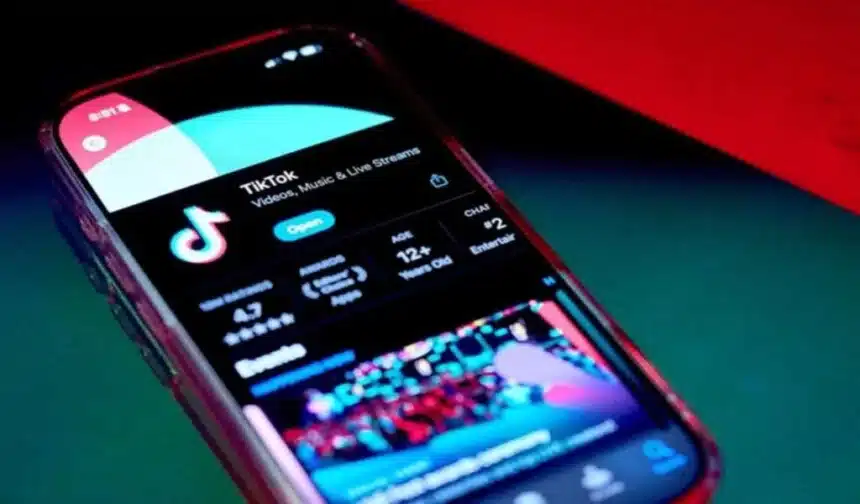The BBC has been informed that a significant increase in the number of individuals installing the TikTok app on their phones through unofficial channels has been attributed to the app’s uncertain future in the United States.
The social media platform is permitted to be used in the United States due to an executive order issued by President Donald Trump, despite the Supreme Court’s decision to maintain a law that would result in its sale or prohibition.
However, Apple and Google are still preventing new installations of the app, so people are increasingly relying on a method known as “sideloading” to either download it for the first time or reload it onto a new device.
To acquire software, users are required to access third-party websites, which are occasionally referred to as “black markets,” rather than official retailers.
Signulous, one such organisation, claims that 120,000 individuals have utilised its services to download TikTok onto their iPhones.
Neil Pomperleau, a member of the organisation, provided screenshots of his dashboard, which occasionally indicated over 2,000 downloads per hour.
“One of the most popular apps in the world can only be sideloaded in the US so it’s been a good thing for us with record traffic to our site and a spike in customers” , according to the British broadcaster.
Additionally, individuals in the United States employ virtual private networks (VPNs) to simulate their location in a different country. For instance, TikTok enthusiasts can imagine they are in Canada, where the ban does not apply.
According to Google data, the number of search engine queries for “VPN” reached an all-time high last month.
The method has been the subject of hundreds of thousands of views on YouTube in the past three weeks, with dozens of guides available.
According to experts, the trends demonstrate the challenges associated with enforcing a moratorium if it were to be implemented at the time of the final decision on TikTok, which is scheduled for April.
Presently, it is not illegal to download TikTok, and even though US legislators have declared that distributing it is illegal, President Trump and his predecessor, Joe Biden, have stated that they will not enforce the law.
TikTok’s response and the legal ambiguity of sideloading
Mr. Pomperleau’s and other unofficial app stores operate in a legal grey area by enrolling customers in software developer accounts.
The firms frequently impose a fee for guiding customers through the technical process of sideloading, which is associated with a higher risk of installing malicious or faulty software because the stores are less well-resourced than official app stores.
Mr. Pomerleau, whose organisation assesses individuals for a $20 annual fee, acknowledges that he is conducting business in perilous conditions.
“The law on the books is that TikTok is not allowed to be distributed in the US but we’re sort of operating on this pinky swear from two different US presidents that they won’t enforce this law.”
“I imagine Google and Apple are a little too risk-averse for their size and the whole situation’s unpredictable,” he said.
It appears that TikTok itself is also confident in the President’s assurance.
A download kit was published on Monday to facilitate the app’s sideloading onto Android devices. Sideloading is more prevalent on Android devices than on iPhones.
According to screen images provided to the BBC, AppDB, another iPhone sideloading company, has experienced a twofold increase in membership and nearly 95,000 TikTok downloads since the ban.
Aleksei Borodin, a representative of AppDB, asserts that individuals will consistently devise methods to acquire their desires.
Dewayne Puckett, a user from the United States who downloaded TikTok through the sideloading procedure, described the experience as “an experience, but the app functions as expected.”
Apple has long maintained that apps must be vetted and verified through the official App Store, and it argues that sideloading applications poses a security risk.
The company asserts that the average 30% commission it charges to applications that utilise its store is necessary for consumer protection.
Despite the controversy surrounding the fee, Apple is generally more successful in preventing the distribution of malicious applications than other marketplaces, such as Google’s Play Store.
Apple has been compelled to permit competition app retailers to operate on the iPhone in the EU since March of last year due to the implementation of new legislation designed to promote greater consumer choice.

Salman Ahmad is known for his significant contributions to esteemed publications like the Times of India and the Express Tribune. Salman has carved a niche as a freelance journalist, combining thorough research with engaging reporting.














